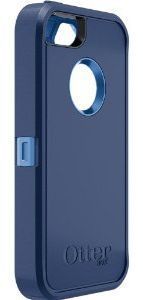 Los Angeles, CA – The Otterbox trademark owner filed four trademark infringement lawsuits against several defendants for allegedly selling Smartphone and tablet cases bearing counterfeit Otterbox trademarks. Plaintiff manufactures protective cases, peripherals and accessories for the iPhone, iPad, iPod, Samsung, HTC and other electronic device and computer manufacturers. Plaintiff is the owner of U.S. Patent and Trademark Office registered Otterbox trademarks, “We’ve Got Technology Covered” trademark, and the “Defender Series” trademark. Plaintiff contends that it has spent millions of dollars in advertising to obtain consumer recognition of its trademarks as a symbol of quality.
Los Angeles, CA – The Otterbox trademark owner filed four trademark infringement lawsuits against several defendants for allegedly selling Smartphone and tablet cases bearing counterfeit Otterbox trademarks. Plaintiff manufactures protective cases, peripherals and accessories for the iPhone, iPad, iPod, Samsung, HTC and other electronic device and computer manufacturers. Plaintiff is the owner of U.S. Patent and Trademark Office registered Otterbox trademarks, “We’ve Got Technology Covered” trademark, and the “Defender Series” trademark. Plaintiff contends that it has spent millions of dollars in advertising to obtain consumer recognition of its trademarks as a symbol of quality.
Particularly in light of the success of Plaintiffs products, as well as the outstanding reputation they have gained, Plaintiff and its products have become targets for unscrupulous individuals and entities who wish to take a “free ride” on the goodwill, reputation and fame Plaintiff has spent considerable effort and resources to build up in their products and trademarks.
Plaintiff alleges that Defendants own and operate eBay storefronts advertising and selling unauthorized products that infringe its trademarks or bear counterfeit trademarks. One defendant is accused of selling at least $88,000 worth of infringing products.
To dissuade counterfeiters and intentional infringers, the Lanham Act allows a court to triple plaintiff’s damages or defendant’s profits and award attorneys’ fees and costs. 15 U.S.C. §1117(a). One of the advantages afforded an USPTO registered trademark owner is the ability to recover statutory damages where proving actual damages or defendant’s profits would be difficult or untenable. 17 U.S.C. §1117(d). The award of statutory damages can range, as the court considers just, from $1,000 to $200,000 per counterfeit trademark for innocent infringement and not more than $2,000,000 per counterfeit mark for willful infringement.
Attorneys’ fees and costs in trademark infringement cases are not automatically recoverable and are instead awarded in “exceptional” cases. There’s currently a split in the circuits as to what constitutes an “exceptional” case, including different standards for victorious plaintiffs and defendants. A relatively recent 7th Circuit case surveys and summarizes the varying rules of the federal circuits. Nightingale Home Healthcare, Inc. v. Anodyne Therapy, LLC, 626 F.3d 958, 960–961 (7th Cir. 2010). A word of caution to trademark plaintiffs in the 9th Circuit is warranted when considering election of actual damages or statutory damages. The 9th Circuit has held that attorney’s fees are not available to plaintiffs that elect statutory damages. K and N Engineering, Inc. v. Bulat, 510 F.3d 1079, 85 U.S.P.Q.2d 1372 (9th Cir. 2007) (“Section 1117(c) makes no provision for attorney’s fees; nor does § 1117(b) authorize such fees for a plaintiff seeking statutory damages under § 1117(c). Section 1117(b)’s attorney’s fees provision applies only in cases with actual damages under § 1117(a).”)
The cases are:
Otter Products, LLC v. TJEDIRECT, Inc. et al., CV13-04472 CAS (C.D. Cal. 2013);
Otter Products, LLC v. Pebble Holt et al., CV13-04470 CAS (C.D. Cal. 2013);
Otter Products, LLC v. Angel Luis Berrios, Jr. et al., CV13-04384 CAS (C.D. Cal. 2013); and Otter Products, LLC v. Jared Hansen et al., CV13-03712 PA (C.D. Cal. 2013).
 Los Angeles Intellectual Property Trademark Attorney Blog
Los Angeles Intellectual Property Trademark Attorney Blog

